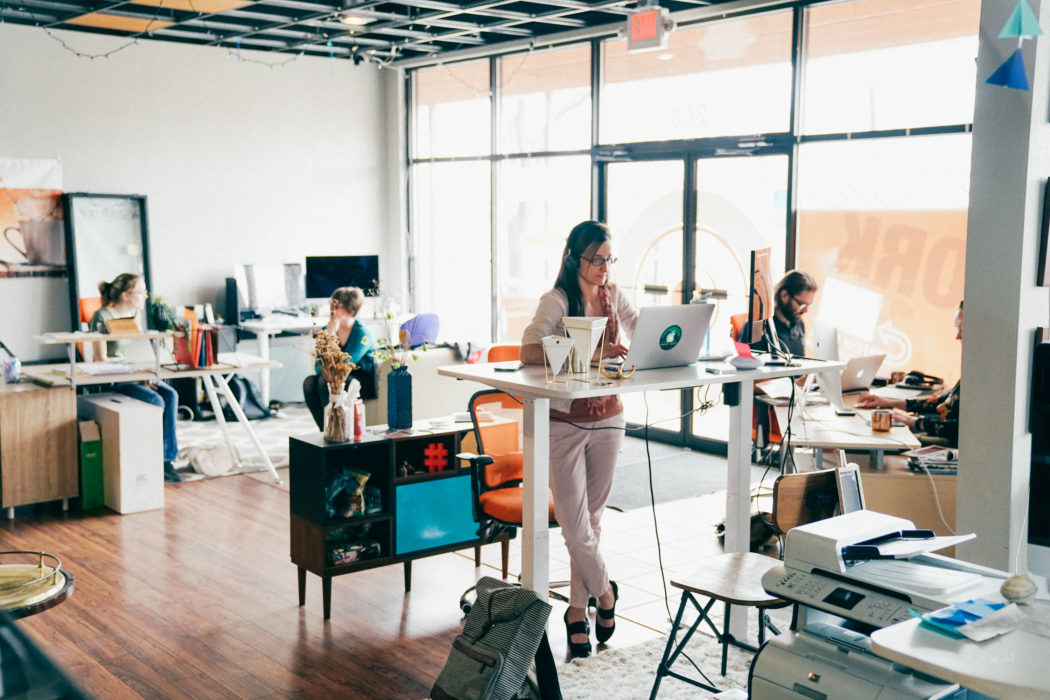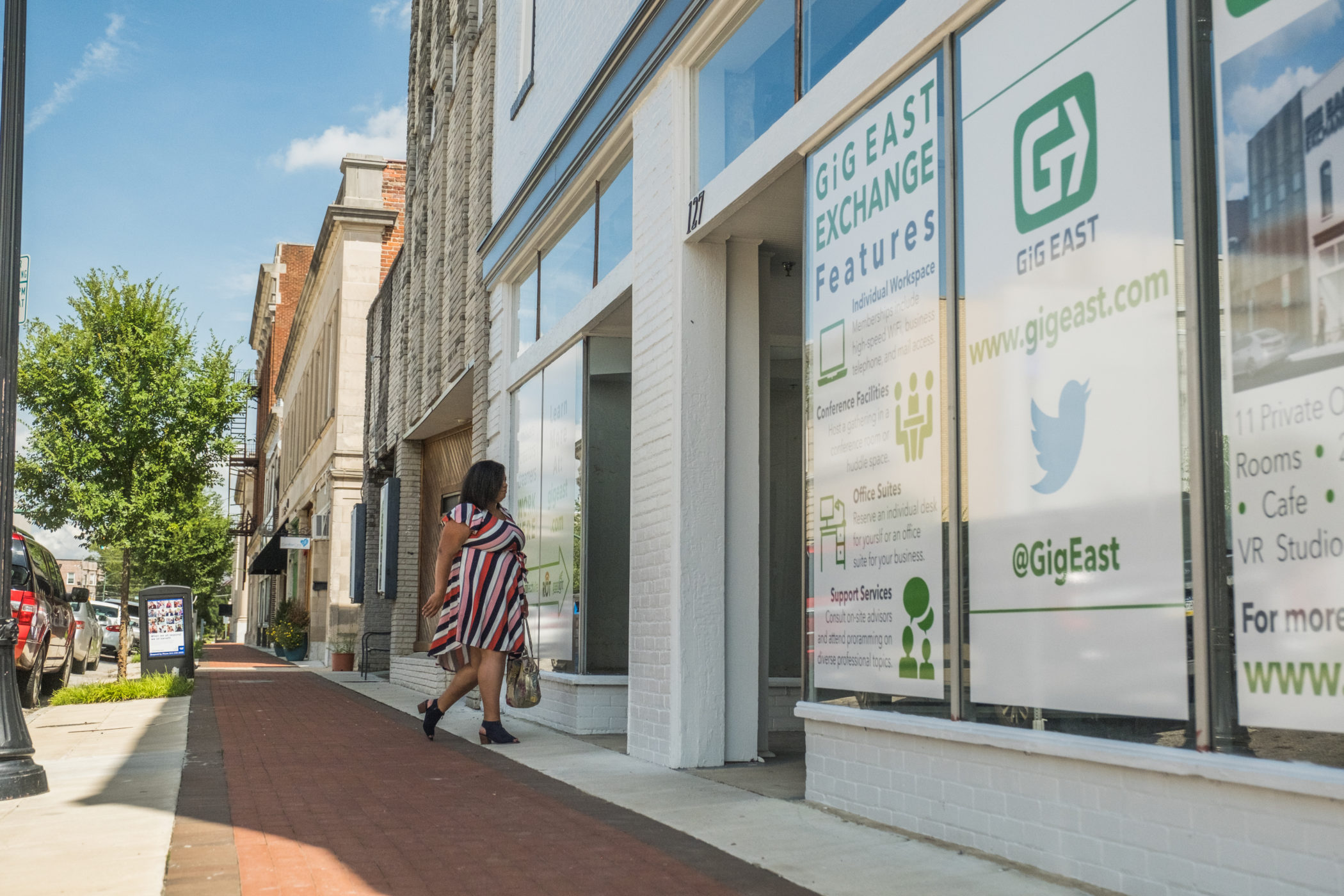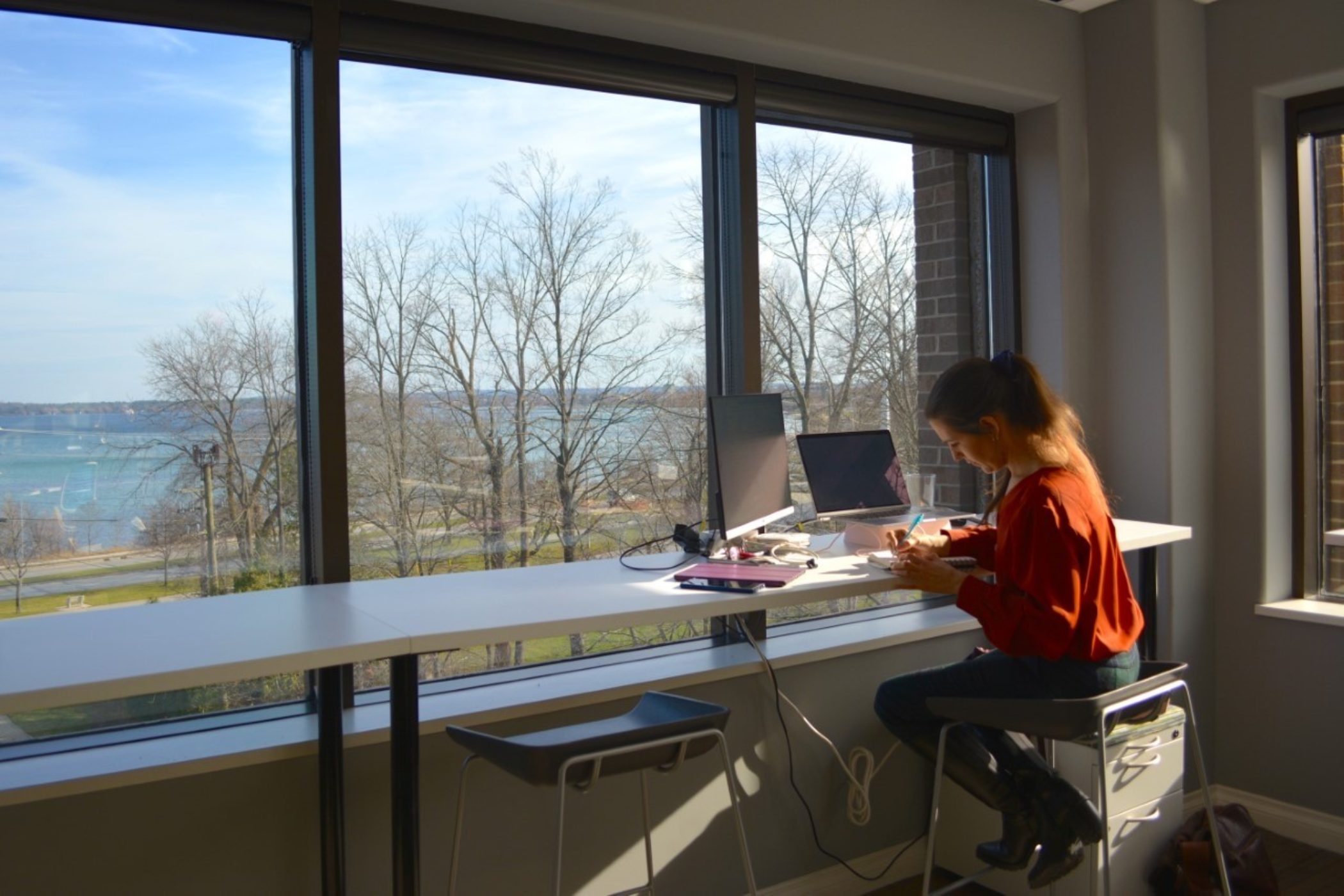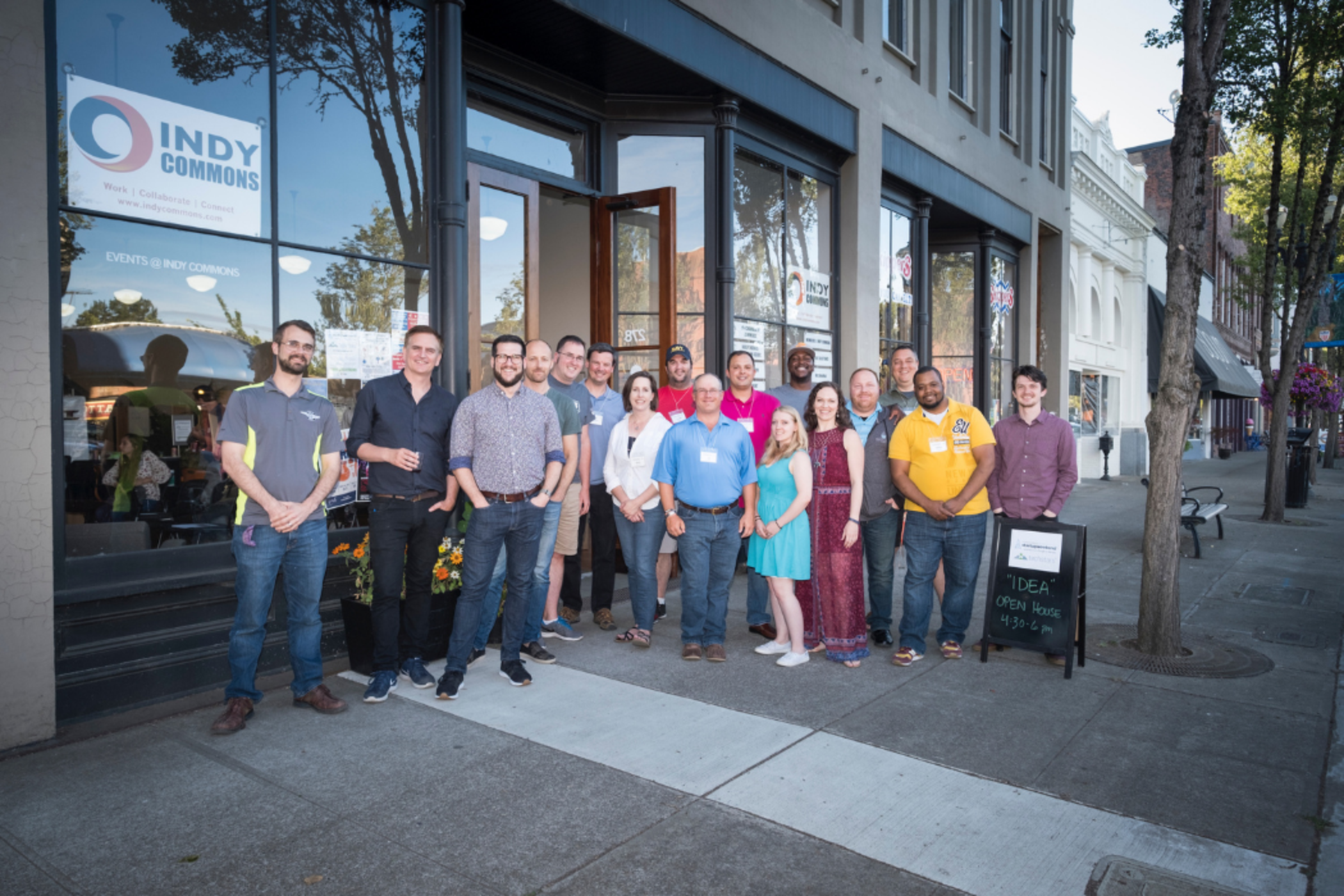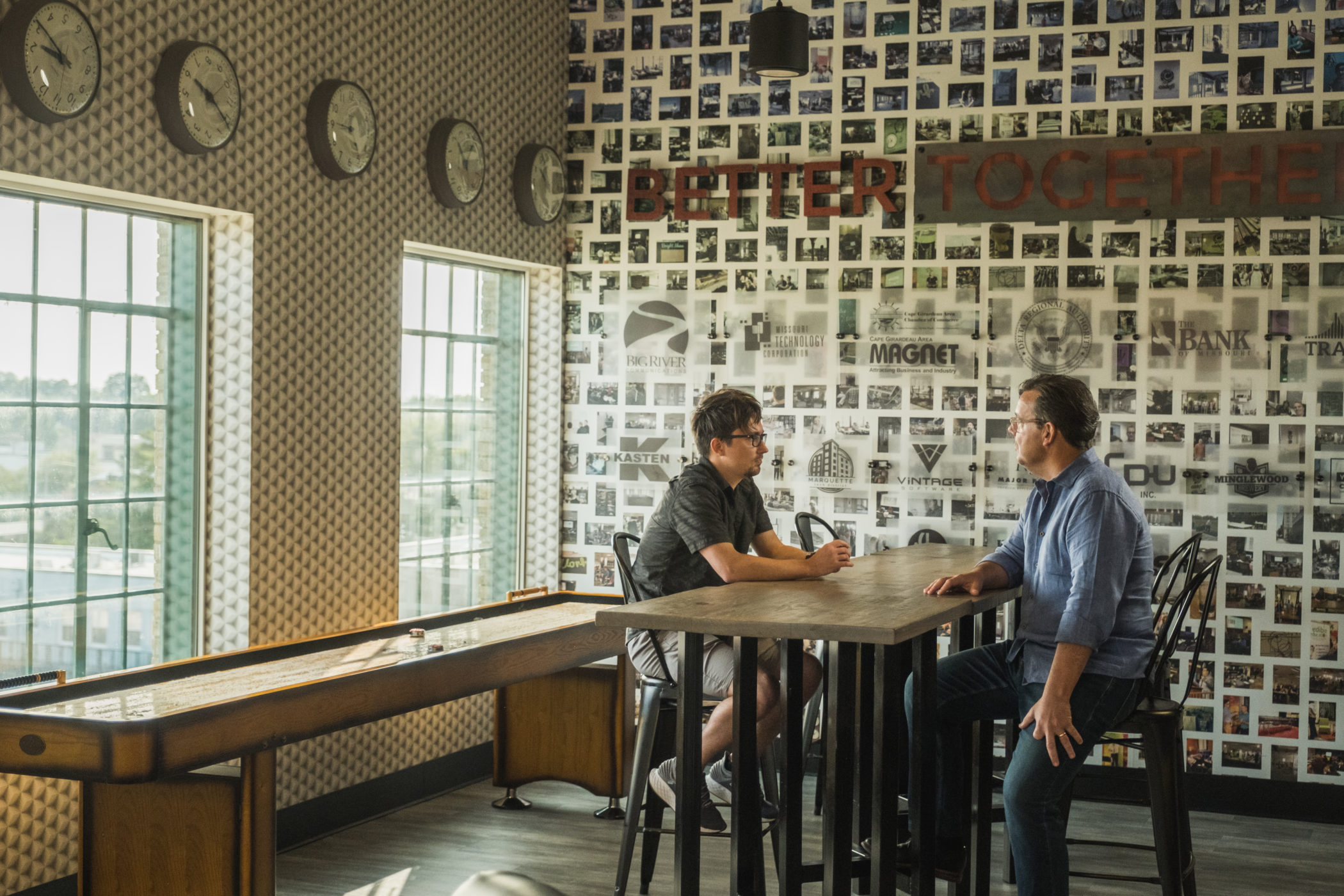Why coworking and entrepreneurship spaces are crucial to digital economic development
The second part of a three-part series on the infrastructure needed to build digital economy ecosystems in rural America.
Building a digital economy ecosystem in a rural place is a holistic endeavor. Just having one piece won’t lead to success.
One essential component is the foundational elements that provide a base for future growth — safe downtowns, local amenities, and strong K-12 education. Direct Drivers are another — things such as Access to Capital and Digital Workforce Development that truly enable a place to compete in the digital economy.
This piece, however, looks at a third: Necessary Infrastructure — what is needed specifically for a digital economy. With the right infrastructure in place, communities can create the kind of programming and resources needed for a self-sufficient ecosystem that generates long-term wealth and digital employment.
We’ve identified three pieces of necessary infrastructure that rural communities need for digital economy ecosystems: Broadband, coworking and entrepreneurship spaces, and local leadership capacity. We’ve defined each component and its role in a digital ecosystem. We’ve also highlighted how our Rural Innovation Network communities model them, and offer best practices for how other rural communities can enhance their own infrastructure.
What makes coworking, maker, and entrepreneurship spaces necessary infrastructure?
At the Center on Rural Innovation, we define coworking, maker, and entrepreneurship spaces as part of necessary infrastructure like this:
Coworking, maker, and entrepreneurship organizations offer events and programming that allow the community to connect, network, collaborate, and share knowledge. By bringing together different workers from digital backgrounds, they foster virtuous collisions and amplify what that talent can do locally.
Coworking spaces also attract remote workers, who increase the density of tech talent in a given region. Moreover, having physical spaces is a critical piece of building a local culture that encourages technology skills and startups. A centralized hub makes the digital economy visible and accessible to more people.
Why these physical spaces matter for digital ecosystem building
In most kinds of community building efforts, it is important to have a common space for people to meet, socialize, share ideas and understand that there are others nearby with similar passions. Digital economies are no different.
Particularly in smaller markets, coworking, maker, and entrepreneurship spaces are ideal for creating a central point of aggregation.
- Cowork spaces serve a practical role of creating inexpensive locations for remote workers or self-employed individuals to work in a professional environments, supported by amenities like shared kitchens, superior broadband speeds, conference rooms with higher end video conferencing capacity, and event space. These facilities have a community of people to engage during breaks and after work to avoid the challenges of isolation faced by many remote workers. Cowork spaces typically offer flexible or dedicated desk space in open settings, and the best provide some level of programming related to professional development or community building activities.
- Maker spaces serve similar functions. while also providing shared equipment that might be too expensive for an individual creative person to purchase (e.g., 3-D printers, CNC machine, soldering tools for electronics.) and open classes that allow community members and students to engage with these new economy skills.
- Entrepreneurship spaces can be co-located easily with cowork spaces, but provide deeply discounted or free dedicated office spaces to allow small teams to collaborate and still provide a secure setting to ensure intellectual property is protected.
Spaces like these are often a new concept in small towns, but they have a central role to play in building rural digital economy ecosystems. These spaces unify remote workers, entrepreneurs, investors, and community members under one roof, fostering an ideation hub that spurs the kinds of connections and virtuous collisions that drive innovation.
All this talent in one centralized location can generate partnerships, match startups with the resources they need to thrive, and contribute to a culture where exciting business developments are the norm. This is especially true when coworking spaces serve as event hosts — explicitly bringing people together in a shared vision of the new economy—and training hubs, which offer opportunities for local workers to skill up and connect with growing local or remote companies.
It’s also true when these spaces are connected to or in partnership with loft apartments (which can attract younger workers looking for low-maintenance accommodations and no commute) or childcare services (which make it easier for working parents to be involved).
In this way, coworking and entrepreneurship spaces are infrastructure that makes the digital economy visible in a rural community, overcoming cultural barriers of not seeing coworking as part of the community’s traditional mode of being.
Especially when located in a centralized place downtown — ideally with views, attributes, and interior features that make it stand out from a generic office or industrial park — coworking spaces change the narrative of what rural economies can be and do, including through an inclusive vision that makes this new work accessible to all parts of the community.
Success stories from the Rural Innovation Network
Throughout CORI’s Rural Innovation Network, many of our community partners are coworking and entrepreneurship spaces. Below are just a few examples of spaces that are supporting the digital economy in their region.
- Codefi: Located in Cape Girardeau, Missouri, Codefi is a bustling coworking space that supports remote workers, startups, and locals looking to gain tech skills. Codefi’s coworking space boasts 340 members in its 17,000-square-foot location, and through the entrepreneurship program, they’ve supported 50 startups that have created more than 200 local jobs.
- The Generator: Located in Pine Bluff, Arkansas, The Generator is a coworking and makerspace that’s a project of Go Forward Pine Bluff. The Generator provides early-stage entrepreneurship programming, and is opening its doors in its redesigned location by.
- 20Fathoms: Based in Traverse City, Michigan, 20Fathoms is an all-in-one innovation hub that boasts 65 coworking members and has supported 41 startups that have generated more than $34 million in local private investment. 20Fathoms was born from the virtuous collisions of local remote workers, who banded together to create a centralized space for innovation and investment in Traverse City.
- TaosHIVE: A collaboration with the University of New Mexico-Taos, TaosHIVE is a coworking space and small business support center that also offers on-site UNM courses. Their “hive” environment combines small business coaching and mentorship, a coworking space, and community college classrooms to support any stage of learning in an accepting, accessible, and community-led atmosphere.
- Indy Commons: Found in downtown Independence, Oregon, IndyCommons is run by Kate Schwarzler, who moved back to rural Oregon and built the space to help the local business community thrive. Indy Commons offers individual desks, office space, business consulting, and an array of other features—and even has a full-scale test kitchen designed to bring the community together in new ways.
How rural communities can build successful coworking and entrepreneurship spaces
Creating a successful coworking space is a major endeavor, but are there a few key steps every rural community can take to help ensure success.
- Create an atmosphere of inclusivity and programming that is intentionally inclusive. This ensures that all residents feel welcome and creates a diverse pipeline of entrepreneurs and skilled residents that contribute to the sustainability and vibrancy of the space.
- Build the space with proximity to cultural amenities and social gathering spaces. Coworking is about connectivity, so neither the location nor the programming should be isolated. By locating the space downtown or near other cultural assets, it can become a visible and accessible fixture in the community. Locating the space here also provides value to other main street businesses, increasing density and foot traffic in the downtown.
- Have a clear revenue model for sustainability. Ultimately, your space has to generate revenue. This can often be done through a focus on diversified revenue streams, with options for both private offices and open desks, along with programming and event hosting. However, these community spaces do not need to be profit centers; fortunately, Increasingly, local, state and federal funders increasingly understand the value of these enterprises and are providing funding for the core infrastructure to decrease the overhead and ensure that downtowns benefit from increased numbers of remote workers.
- Build partnerships with the local community. Coworking spaces thrive when they can lift up existing community strengths. By working with local businesses, chambers of commerce, or higher education institutions, coworking spaces expand their reach and broaden the pool of people who can benefit from their services. Partnership-building is also crucial for ensuring that the coworking space meets the needs of the community and tailors its offerings to that end.
In the age of the internet, there should be no limit to where digital economy jobs and startups can take place. The COVID-19 pandemic helped open people’s eyes to the possibility of working where they want to live rather than living where they need to work, including returning to rural America. But we can only realize that dream once broadband is available in every community.
Stay connected
At the Center on Rural Innovation, we are working with rural communities across the country to improve broadband availability. To learn more about our work in this space, be sure to check out our blog and sign up for our newsletter.
To learn more about our full ecosystem model and see how necessary infrastructure like broadband fits into the puzzle, head here.
If you are interested in working with us to grow your digital economy ecosystem, please contact us.
